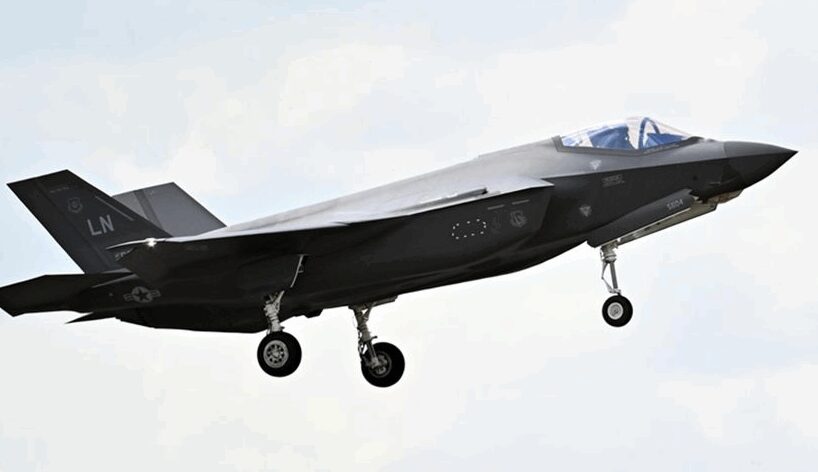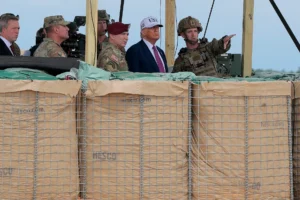
2025-07-26T10:51:46+00:00
font
Enable Reading Mode
A-
A
A+
Shafaq News
In a
high-stakes operation deep inside Syrian territory, US-led coalition forces,
acting on intelligence from Iraqi counter-terrorism units, killed one of the
Islamic State’s most senior figures—Diaa Zoba’ Mislah al-Hardan, known by his
nom de guerre “Abu Abdullah al-Ansari”—in a precision raid in the city of
al-Bab, Aleppo province, early on July 25.
According to
multiple Iraqi and coalition sources, including an official statement by the US
Central Command (CENTCOM), the operation targeted a residential compound where
al-Hardan and his family had been hiding. Two of his sons—identified as
Abdullah and Abdulrahman—were also killed in the assault, which involved an
airborne insertion and heavy drone surveillance. No civilian or coalition
casualties were reported.
CENTCOM Forces Kill Senior ISIS Leader in Al Bab, SyriaEarly this morning in al Bab, Aleppo Governate, Syria, CENTCOM Forces conducted a raid resulting in the death of senior ISIS Leader, Dhiya’ Zawba Muslih al-Hardani, and his two adult ISIS-affiliated sons, Abdallah Dhiya… pic.twitter.com/evxPNBaQj2
— U.S. Central Command (@CENTCOM) July 25, 2025
The raid
marks one of the most significant blows to ISIS’s operational leadership. Iraqi
intelligence services had identified al-Hardan as a top-tier commander and a
strategic coordinator for ISIS activities along the Iraq-Syria border.
Deep
Intelligence Network Behind the Operation
The Iraqi
Counter-Terrorism Service (CTS) confirmed its role in the operation,
emphasizing that “persistent intelligence-gathering and surveillance” by its
units directly facilitated the cross-border mission. An arrest warrant for
al-Hardan had previously been issued by Iraq’s Counter-Terrorism Court.
Security
sources told Shafaq News that loudspeakers were used to call for the suspects
to surrender before the assault, suggesting that capturing al-Hardan alive was
the initial objective.
بسم الله الرحمن الرحيم (وَاللَّهُ يُؤَيِّدُ بِنَصْرِهِ مَنْ يَشَاءُ إِنَّ فِي ذَلِكَ لَعِبْرَةً لِأُولِي الْأَبْصَارِ) صدق الله العلي العظيم =========بمعلومات استخبارية من جهاز مكافحة الإرهاب…. مقتل مايسمى والي (ولاية الخير والبركة) في عصابات داعش الإرهابية 00000000 pic.twitter.com/UKWFqmCm3Y
— جهاز مكافحة الإرهاب (@iraqicts) July 25, 2025
Who Was Abu
Abdullah al-Ansari?
Al-Hardan
was born in Iraq’s Al-Anbar province in 1975 and began his militant career with
al-Qaeda before joining ISIS at its inception in 2013. Over the years, he rose
through the group’s ranks, becoming wali (governor) of ISIS’s self-declared
“Wilayat al-Furat” (Euphrates Province) and a key member of its so-called
“delegated committee.”
At the time
of his death, he reportedly held the position of wali of “Wilayat al-Khayr
wal-Baraka,” ISIS’s nomenclature for eastern Syria.
Intelligence
sources confirmed that al-Hardan was responsible for coordinating cross-border
operations, recruitment, smuggling networks, and financial flows between Iraq
and Syria. He is believed to have operated a secure communications and
logistics channel linking remnant ISIS cells on both sides of the border.
Two of his
sons, killed alongside him, are said to have occupied key security roles within
his inner circle.
Social media
accounts affiliated with ISIS circulated what they claimed to be an internal
document from the group’s “Judicial Committee” confirming al-Hardan’s
death. While the document’s authenticity could not be independently verified,
its contents matched the details provided by both CENTCOM and Iraqi
authorities.
Strategic
Implications
Security
analyst Abbas al-Bayati told Shafaq News that the elimination of al-Hardan is
not just a tactical win, but a strategic intelligence breakthrough.
“He wasn’t
merely a battlefield commander,” al-Bayati said. “He functioned as a
coordinator for ISIS’s transnational logistics—money, fighters, weapons. His
removal disrupts an already fragmented network.”
Nonetheless,
the analyst warned that the ideological and operational threat posed by ISIS
persists.
“Leadership
decapitation affects functionality, not ideology,” he said. “New figures will
emerge unless governance and border security are reinforced.”
The Broader
Threat Landscape
Despite the
operation’s success, regional officials and counter-terrorism experts caution
against complacency. ISIS, though territorially defeated, remains active in
ungoverned areas of Syria and Iraq.
“The killing
of a high-ranking commander like al-Hardan delivers a critical blow to ISIS’s
structure,” a military source said. “But it does not end the fight.”
Security
sources say ISIS continues to exploit border vulnerabilities, local grievances,
and weak state presence to regenerate leadership and coordinate attacks.





